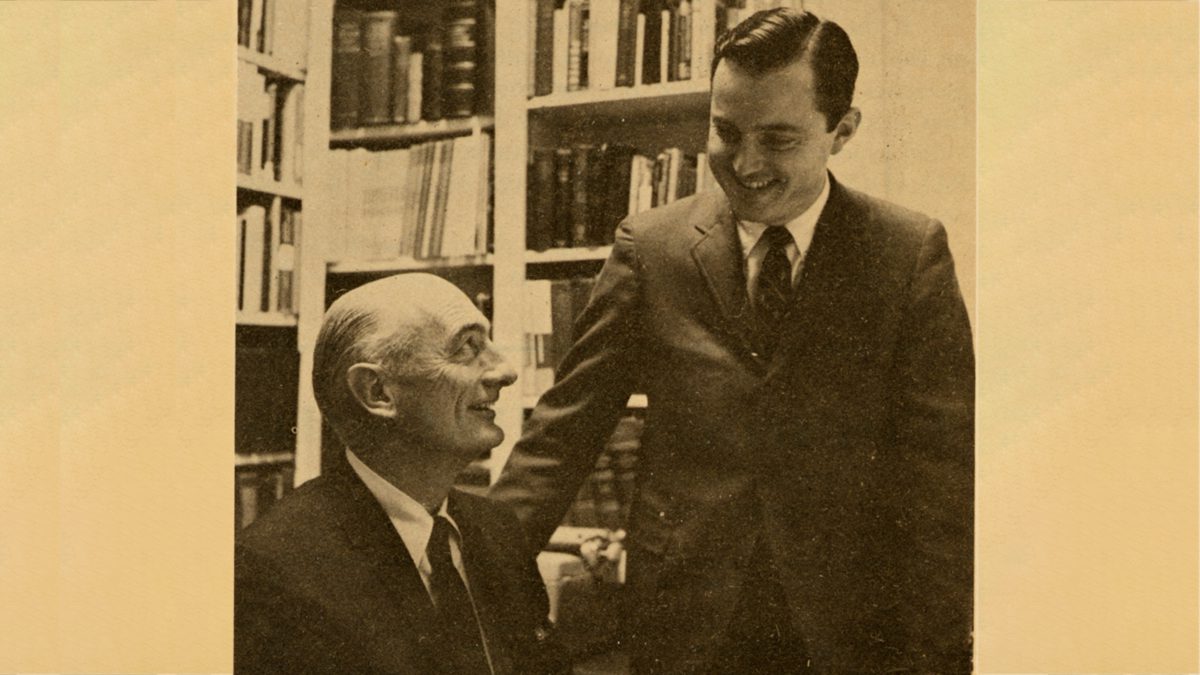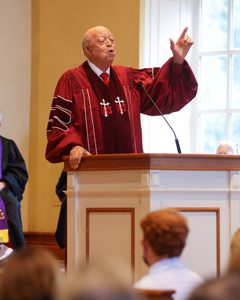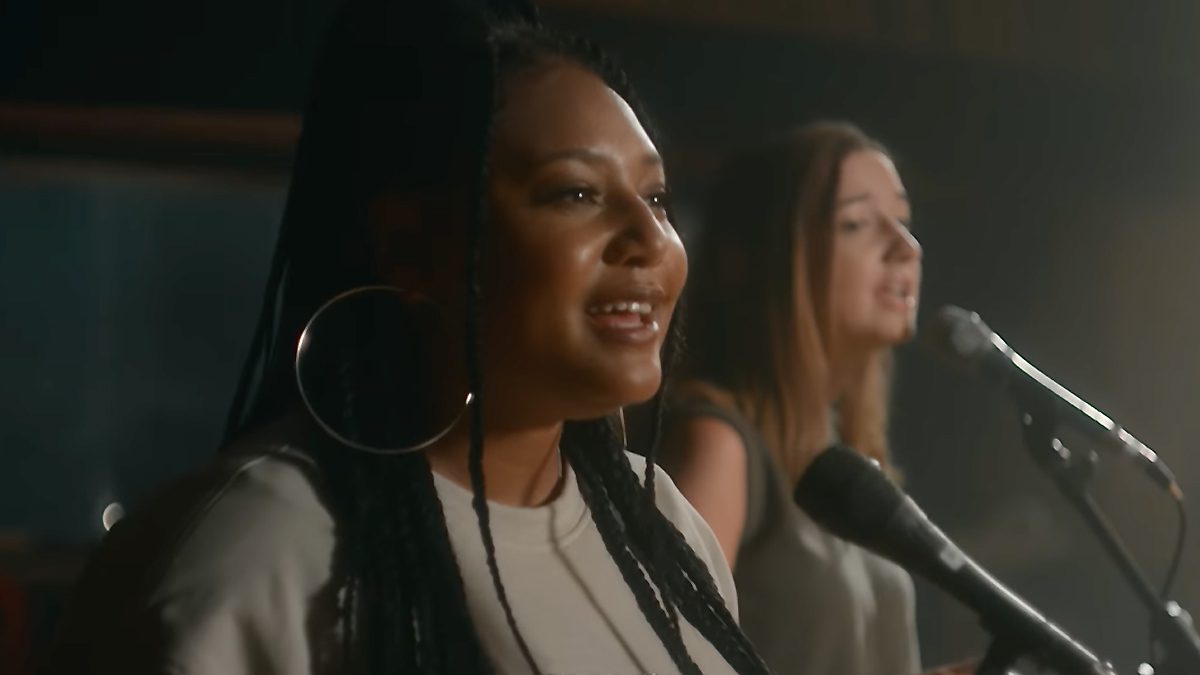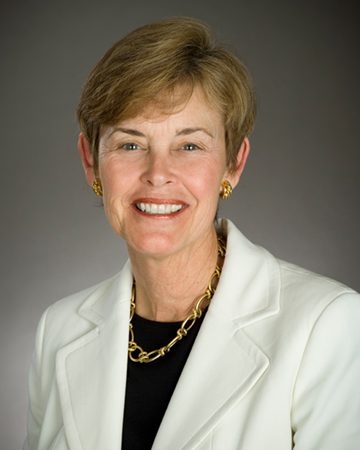
Around The Lake
The Furman family remembers Rev. Pitts
Jim Pitts ’60 helped guide the university during integration, the Vietnam War and the break from the Southern Baptist Convention.
By Kelley Bruss

Rev. Grady Butler speaks about Pitts during the memorial in October 2021.
Jim Pitts ’60 left his mark at Furman by spending his decades there on everyone but himself.
The university celebrated his life in an October worship service at Daniel Chapel. Pitts, 83, died January 18, 2021. He served Furman from 1967 to 2003, including more than 20 years as university chaplain. In story after story, former students and colleagues recalled the ways that Pitts invested in them and countless others.
Vic Greene ’73, associate chaplain under Pitts, said his friend exemplified a life well-lived. “But also well-shared,” Greene said.
Pitts helped stabilize Furman through integration, Vietnam and the break from the Southern Baptist Convention.
“He walked with us through countless times of celebration and of heartbreak,” Greene said.
The Rev. Peggy Haymes ’82, a therapist, minister and writer, recalled meeting Pitts at the start of her first year at Furman, when she brought him a prayer she had written. As part of helping her explore church-related vocations, Pitts introduced Haymes to the first clergywoman she’d ever met.
He had a gift for connecting people, Haymes said. And for students, a gift “for introducing us to parts of ourselves that we did not yet know existed.”
“Jim nudged, he encouraged,” she said. “Sometimes he pushed.”
Pitts developed an internship program through Church Related Vocations for students planning to work in ministry. For Haymes, that experience was profound.
“I still draw on what I learned in my internship at the old Greenville Memorial Hospital,” she said.
Vernon Burton ’69, a Clemson University history professor, said Pitts turned him toward graduate school and away from seminary.
“Jim was determined to save Christianity from me,” Burton said, laughing. He held up a copy of one of his many books. “Every book I did, I discussed with him.”
The Rev. Grady Butler remembered Pitts as his brother in civil rights education.
“He was about making a difference in the lives of people, no matter where you were, who you were,” Butler said.
He referred to Pitts as his “special soul brother,” while acknowledging that’s not a phrase most Black men would use for even a dear white friend.
“Jim Pitts transcended race and culture,” Butler said.
The two men were part of a team that took Furman students on trips through the Southeast to learn on location the stories of Selma and Memphis and Montgomery and Atlanta.
“He wanted Furman students to know the real story of what happened,” Butler said.
Cecil Staton ’80 told how Pitts invested in him when he was a high school radio enthusiast with no family college pattern to follow – and an “academic late-bloomer” besides. Pitts played a central role in his enrollment at Furman and was still cheerleading years later when Staton was accepted for graduate work at Oxford. Pitts saw students not as their place of birth or position but as what they had the potential to be.
“My experience was not unique,” Staton said. “That’s what Jim did. He helped students. … He helped them find their way to Furman and all that it could offer them.”
Staton and Pitts later partnered on a Christian publishing venture, Smith and Helwys, for which Pitts served as board chair for more than 30 years.
Shortly after Pitts died, Smith and Helwys published “Walk with Me: Memories, Reflections, and Essays Celebrating the Life of James Milton Pitts.” The book includes 36 remembrances and essays about Pitts. A copy was presented to his widow, Nancy Pitts, and their son, Jonathan Pitts, during the memorial service.
“Jim is gone, but his memories and his works will follow him,” Butler told those at the memorial service. “Amen and amen.”
The print and ebook are available here


